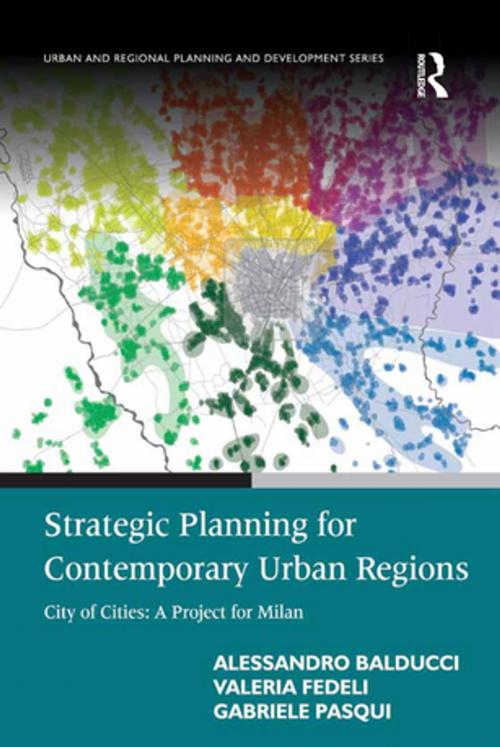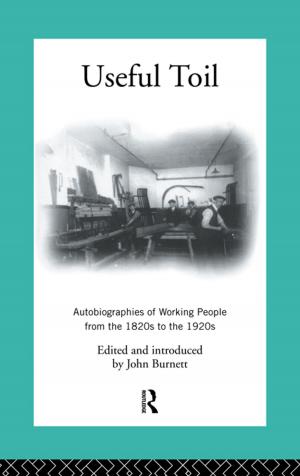Strategic Planning for Contemporary Urban Regions
City of Cities: A Project for Milan
Nonfiction, Social & Cultural Studies, Political Science, Politics, Regional Planning| Author: | Alessandro Balducci, Valeria Fedeli, Gabriele Pasqui | ISBN: | 9781317049562 |
| Publisher: | Taylor and Francis | Publication: | April 1, 2016 |
| Imprint: | Routledge | Language: | English |
| Author: | Alessandro Balducci, Valeria Fedeli, Gabriele Pasqui |
| ISBN: | 9781317049562 |
| Publisher: | Taylor and Francis |
| Publication: | April 1, 2016 |
| Imprint: | Routledge |
| Language: | English |
This book is an account of how the Milan Provincial Administration and a team of researchers from Milan Polytechnic worked together to develop a new 'Strategic Plan' for Milan's urban region. Informed by innovative conceptions of both how to understand cities in the contemporary world, and engage in strategic planning work, this experience has already attracted considerable international attention. The authors now consolidate their contribution into a comprehensive account which continually relates theory and practice Examining the Milan Plan in detail, the book explains the profound transformations which put great pressure on the traditional descriptive tools so planners must engage in the production of new ones. It also proposes that these transformations affect the way in which urban policies and planning processes are designed. The project offers insights into - and new directions for - planning theory more generally, while at the same time testing this powerful and innovative research hypothesis in an important European city empirical study. In detailing the results of this project, this book proposes useful ground-breaking approaches to planning for similar urban regions.
This book is an account of how the Milan Provincial Administration and a team of researchers from Milan Polytechnic worked together to develop a new 'Strategic Plan' for Milan's urban region. Informed by innovative conceptions of both how to understand cities in the contemporary world, and engage in strategic planning work, this experience has already attracted considerable international attention. The authors now consolidate their contribution into a comprehensive account which continually relates theory and practice Examining the Milan Plan in detail, the book explains the profound transformations which put great pressure on the traditional descriptive tools so planners must engage in the production of new ones. It also proposes that these transformations affect the way in which urban policies and planning processes are designed. The project offers insights into - and new directions for - planning theory more generally, while at the same time testing this powerful and innovative research hypothesis in an important European city empirical study. In detailing the results of this project, this book proposes useful ground-breaking approaches to planning for similar urban regions.















